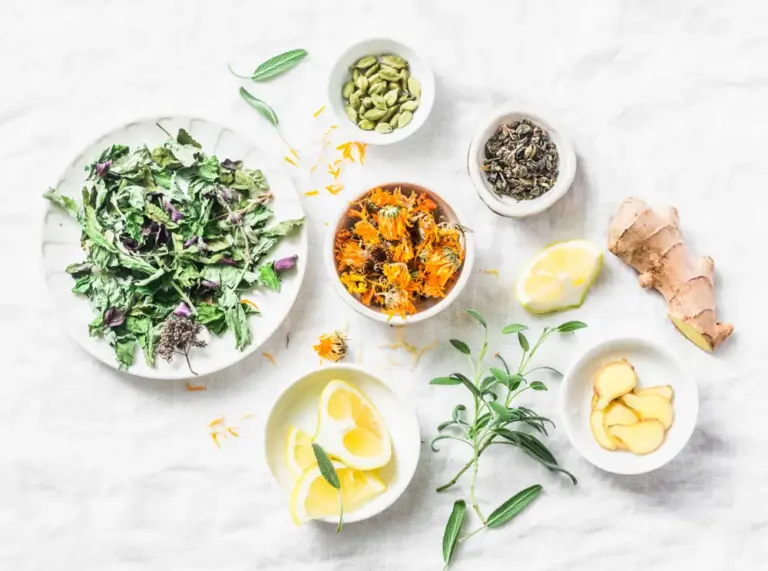Understanding the Link Between PCOS and Inflammation
Polycystic Ovary Syndrome (PCOS) is commonly discussed as a hormonal condition, but inflammation plays a major role in how symptoms show up in your body. Acne, stubborn weight gain, irregular periods, fatigue, and mood changes can all be connected to chronic low grade inflammation. When you calm inflammation naturally, you support healthier hormone balance and help your body function the way it is meant to. Below is a simple yet powerful approach to reducing inflammation and improving PCOS symptoms from the inside out.
🌿 Why PCOS Is an Inflammatory Condition
PCOS is now widely recognized as an inflammatory condition. Many women with PCOS have higher levels of inflammatory markers such as CRP, IL 6, TNF alpha, and other cytokines. This inflammation can exist even if a woman is not overweight. It often begins at the metabolic level where insulin resistance fuels inflammation and inflammation worsens insulin resistance. This cycle can make symptoms stronger and harder to manage.
High androgen levels also play a part. Androgens can make immune cells more reactive, increasing the body’s tendency to produce inflammatory signals. When inflammation rises, hormones become more imbalanced, creating more symptoms. Understanding this connection empowers you to make choices that calm the system rather than add more stress to it.
🌿 Signs Your Body Is Inflamed
Inflammation can show up in several ways. Some signs overlap with typical PCOS symptoms, which is why many women do not realize inflammation is involved.
Common signs include:
- Persistent acne, especially cystic or inflammatory acne
- Weight gain, particularly around the abdomen
- Irregular or heavy periods
- Fatigue and low energy
- Brain fog or difficulty concentrating
- Mood swings or increased irritability
Possible lab indications include:
- Elevated CRP
- High IL 6 or TNF alpha
- Evidence of insulin resistance
- Higher than normal androgen levels
These markers do not diagnose inflammation on their own, but they help paint a clearer picture of your internal environment.
🌿Anti Inflammatory Foods and Nutrients for PCOS
Food is one of the most effective ways to reduce inflammation naturally. Eating in a way that supports your metabolism and your hormones can noticeably improve energy, skin, cycles, and overall wellbeing.
Here are some of the most beneficial anti inflammatory foods for PCOS:
- Fatty fish such as salmon, sardines, or mackerel which provide omega 3 fats that help balance inflammatory responses
- Leafy greens and colorful vegetables rich in antioxidants and phytonutrients
- Berries which are high in anti inflammatory compounds and helpful for blood sugar balance
- Nuts and seeds including walnuts, chia seeds, and flaxseeds that provide fiber and plant based omega 3s
- Extra virgin olive oil which contains compounds that help regulate inflammation
- Turmeric, ginger, rosemary, cinnamon, and other spices which support immune balance
- Green tea which contains polyphenols that support antioxidant and anti inflammatory pathways
Supplements to consider with guidance from a practitioner:
- NAC (N Acetylcysteine) to support antioxidant activity
- Berberine which may support insulin and metabolic health
- Vitamin D, magnesium, and zinc which support both immune and hormone function
Small changes add up. Every anti inflammatory choice you make throughout the day shifts your internal environment toward healing and balance.

🌿 Lifestyle Shifts That Reduce Inflammation
Lifestyle habits influence inflammation just as powerfully as food does. When you support your body daily, your hormones and metabolism begin to respond positively.
Helpful lifestyle changes include:
- Move your body regularly
Regular strength training, walking, or any type of enjoyable movement helps improve insulin sensitivity and support lower inflammatory markers. - Manage stress intentionally
Chronic stress raises cortisol which increases inflammation. Mindful breathing, meditation, journaling, yoga, or time in nature help your nervous system return to a calm state. - Prioritize consistent sleep
Aim for 7 to 9 hours of restful sleep per night. Disrupted sleep affects hormone regulation, hunger cues, and inflammatory load. - Support healthy weight management when appropriate
Even gentle, sustainable shifts in nutrition can lead to improvements in inflammatory markers for women with PCOS. - Reduce pro inflammatory foods
Limit processed sugars, refined carbohydrates, fried foods, and excess saturated fats which can trigger inflammatory pathways. - Incorporate daily stress relief and grounding practices
Activities like stretching, gentle movement, or mindfulness help regulate the nervous system which is closely linked with inflammatory responses.
By pairing supportive foods with nourishing lifestyle habits, you create a holistic foundation for calmer inflammation and more balanced hormones.
Conclusion and Next Steps
Inflammation is a core driver of many PCOS symptoms, but it is also one of the most modifiable. When you understand how inflammation affects your hormones, metabolism, and daily wellbeing, you can make targeted changes that help your body heal. Natural strategies such as anti-inflammatory nutrition, better sleep, stress reduction, movement, and targeted supplements create real shifts that support long term health.
PCOS does not have to feel overwhelming. By supporting your body in these natural and sustainable ways, you begin to restore balance and reduce symptoms gently and effectively.
✨ Start Your Journey to Wellness Today✨
Begin with a free 15-minute clarity call and learn how naturopathy can support your unique health journey.


